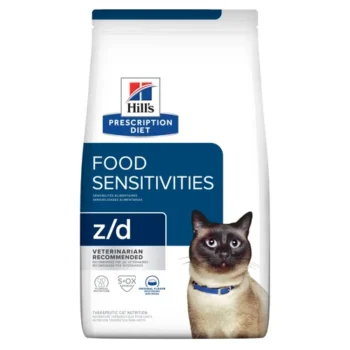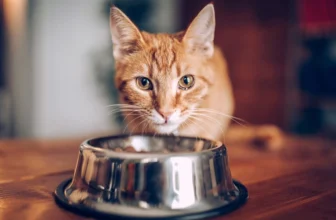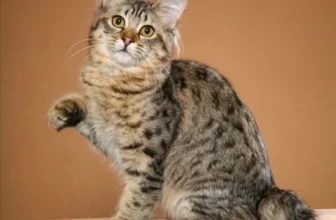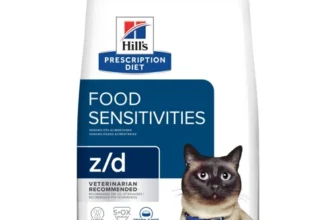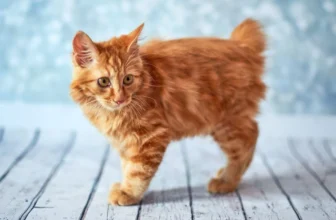As a proud owner of an American Bobtail cat, you want to ensure that your feline companion receives the best possible care. If you have noticed your cat displaying signs of food allergies, such as gastrointestinal upset, skin irritation, or excessive scratching, you may need to consider a switch to hypoallergenic cat food. However, with so many options available, it can be overwhelming to choose the right brand for your cat. In this article, we will explore the world of hypoallergenic cat food and recommend the top brands for American Bobtail cats, as well as provide tips on how to choose the best food for your furry friend’s specific needs.
Understanding Hypoallergenic Cat Food
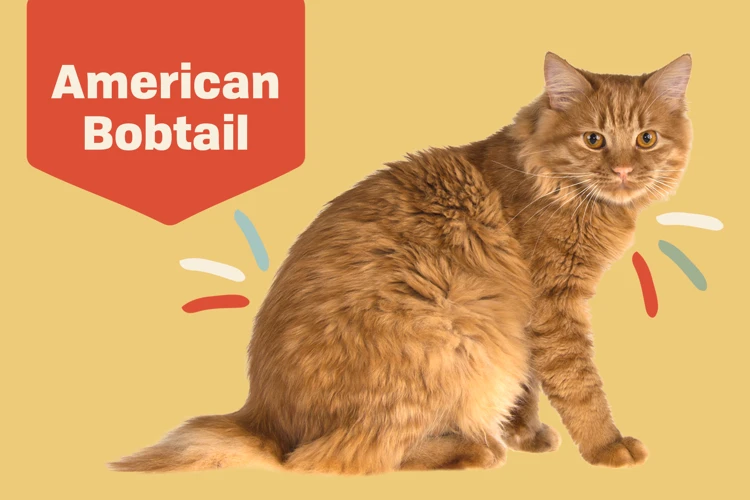
Have you noticed your American Bobtail Cat experiencing regular bouts of itching or digestive upset? If so, it’s possible that they may be suffering from food allergies. One way to deal with this issue is to switch to hypoallergenic cat food. But what exactly is hypoallergenic cat food? In this section, we’ll explore the basics of hypoallergenic cat food, why it may be necessary for your feline friend, and whether American Bobtail cats are particularly prone to allergies. For more information on food allergies in Bobtail cats, click here. If you’re curious about sources of alternative proteins that can benefit Bobtail cats with allergies, click here. Finally, to learn about an effective strategy for determining which foods trigger your Bobtail’s allergy symptoms, check out our article on elimination diets.
What is Hypoallergenic Cat Food?
Hypoallergenic cat food is specially formulated cat food that doesn’t contain common allergens such as beef, chicken, fish, or dairy. It’s designed to meet the nutritional needs of cats while reducing the chances of allergic reactions. The food may also be free of artificial preservatives, dyes, and flavors that can also cause allergic reactions in cats.
Some common allergens in cat food include:
- Beef
- Chicken
- Fish
- Pork
- Dairy products
- Corn and wheat
Hypoallergenic cat food often uses unique sources of protein, such as venison, duck, or rabbit, which may be less likely to cause allergic reactions in cats. It may also use alternative carbohydrate sources, such as sweet potato or pea, in place of grains like corn and wheat.
It’s important to note that not all cats need hypoallergenic cat food, and it should only be used if recommended by a veterinarian. Some cats may have specific dietary needs, especially if they suffer from allergies, gastrointestinal issues, or other health problems.
In the case of American Bobtail cats, hypoallergenic cat food may be a good option if they have a history of allergies or intolerances to common cat food ingredients. If you’re unsure about whether your cat needs hypoallergenic cat food, it’s best to consult with your veterinarian. They can help you determine the best diet for your cat’s individual needs.
If you’d like to learn more about the link between American Bobtail cats and food allergies, check out our article on Bobtail Cat Food Allergies.
Why Choose Hypoallergenic Cat Food?
Hypoallergenic cat food is designed to be gentle on your cat’s digestive system and reduce the risk of allergic reactions to certain ingredients. If your cat suffers from food allergies or intolerances, switching to a hypoallergenic diet can help alleviate their symptoms and improve their overall health. Here are some reasons why you should consider choosing hypoallergenic cat food:
| Reasons to Choose Hypoallergenic Cat Food |
|---|
| Reduced risk of digestive upset: Hypoallergenic cat food is formulated with carefully selected ingredients that are less likely to cause digestive upset, such as vomiting and diarrhea. |
| Reduced risk of skin irritation: Some cats may be allergic to certain ingredients in their food, which can cause skin irritation and even hair loss. Hypoallergenic cat food can help alleviate these symptoms and promote healthy skin and coat. |
| Increased nutrient absorption: When your cat’s digestive system is functioning properly, they are better able to absorb the nutrients from their food. Hypoallergenic cat food can help promote healthy digestion, leading to improved nutrient absorption and overall health. |
| Reduced risk of food allergies: If your cat is prone to food allergies, hypoallergenic cat food can help prevent future allergic reactions by avoiding common allergens such as grain, poultry, and beef. |
| Improved quality of life: By providing your American Bobtail cat with hypoallergenic cat food, you can help promote their overall health and well-being, leading to a happier and more active life. |
Choosing hypoallergenic cat food can make a significant difference in your cat’s health and happiness. Be sure to consult with your veterinarian to determine if hypoallergenic cat food is the right choice for your American Bobtail cat and which specific brand and formula is best for their unique needs.
Are American Bobtail Cats Prone to Allergies?
Are American Bobtail Cats Prone to Allergies?
Like all cats, American Bobtails can develop allergies to certain foods or other substances. However, some breeds may be more prone to allergies than others due to genetic factors. While there isn’t much research specifically on American Bobtail cats and allergies, some veterinarians believe that the breed may have a higher risk of developing allergies, particularly to fleas or environmental allergens.
If your American Bobtail is sneezing, itching, or experiencing digestive upset, it’s important to bring them to a veterinarian to determine the source of the problem. This may involve allergy testing or other diagnostic techniques to identify the specific allergen causing the symptoms.
Common Symptoms of Allergies in Cats
If you suspect that your American Bobtail may have allergies, some common symptoms to look for include:
- Sneezing
- Coughing
- Itching or scratching
- Skin redness or irritation
- Vomiting or diarrhea
- Runny nose or eyes
If your cat is displaying any of these symptoms, it’s important to seek veterinary care as soon as possible. Allergies left untreated can lead to serious health issues and discomfort for your pet.
Preventing and Managing Allergies in American Bobtail Cats
While there is no way to completely prevent allergies in cats, there are steps you can take to minimize your American Bobtail’s exposure to known allergens. This may include flea prevention measures, such as regular topical treatments or flea collars.
Additionally, choosing a hypoallergenic cat food may help reduce the risk of food allergies in your pet. Look for high-quality options made with limited ingredients and free from common allergens like corn and wheat.
If your American Bobtail does develop allergies, your veterinarian may recommend treatments such as antihistamines, allergy shots, or topical creams to manage their symptoms.
As a responsible pet owner, it’s important to be proactive in caring for your American Bobtail’s health and addressing any potential allergies as soon as they arise. With proper care and attention, your furry friend can lead a healthy, happy life free from allergy-related discomfort.
Top Hypoallergenic Cat Food Brands for American Bobtail Cats
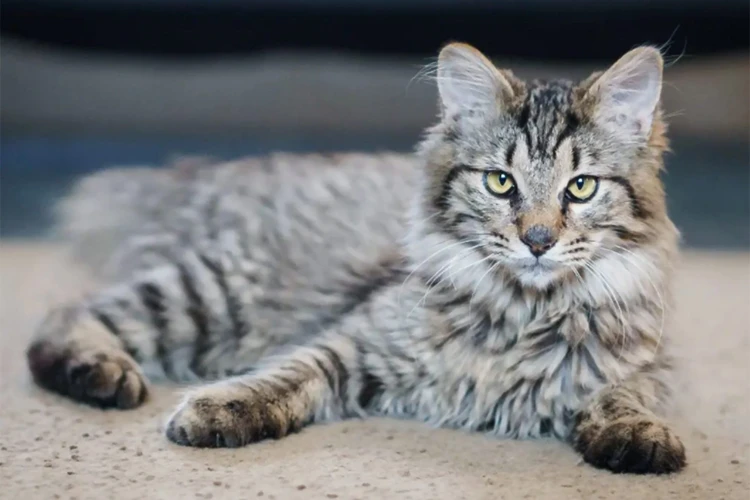
Navigating the world of cat food can be overwhelming, especially when you add in the need for hypoallergenic options. If your American Bobtail cat suffers from food allergies, it can be difficult to find a diet that won’t cause uncomfortable symptoms. Fortunately, there are several high-quality brands that offer hypoallergenic options for sensitive cats like the American Bobtail. Let’s take a closer look at some of the top hypoallergenic cat food brands available.
Hill’s Science Diet Sensitive Stomach and Skin Dry Cat Food
One of the top hypoallergenic cat food brands for American Bobtail cats is Hill’s Science Diet Sensitive Stomach and Skin Dry Cat Food. This brand is specially formulated to meet the unique dietary needs of cats with sensitive stomachs and skin.
This brand offers a well-balanced diet with digestible ingredients that are gentle on your cat’s stomach. It contains prebiotic fiber to support digestive health while maintaining a healthy microbiome in your cat’s gut. This helps to minimize gastrointestinal issues such as vomiting and diarrhea.
This hypoallergenic cat food brand is enriched with vital nutrients to promote healthy skin and a shiny coat. The proteins used in this brand are high-quality and sourced from chicken and turkey, which are easily digestible for most cats. The absence of artificial colors, flavors, and preservatives also makes it safe for cats with food allergies.
If you’re looking for a hypoallergenic cat food brand that meets the dietary requirements of your American Bobtail cat, consider Hill’s Science Diet Sensitive Stomach and Skin Dry Cat Food. Here’s a quick summary of its nutritional value:
| Nutrient | Amount Per Serving |
|---|---|
| Crude Protein | 30% |
| Crude Fat | 17% |
| Crude Fiber | 4% |
| Moisture | 10% |
| Calories | 375 kcal/cup |
This hypoallergenic cat food brand is an excellent choice for American Bobtail cats with food sensitivities. It offers a complete and balanced diet that supports digestive health, promotes healthy skin and a shiny coat, and is free from common allergens. However, always consult your veterinarian before switching to a new cat food brand to ensure that it is appropriate for your cat’s unique nutritional needs.
Purina Pro Plan FOCUS Sensitive Skin & Stomach Adult Dry Cat Food
One of the top hypoallergenic cat food brands for American Bobtail cats is Purina Pro Plan FOCUS Sensitive Skin & Stomach Adult Dry Cat Food. This brand of cat food contains high-quality protein, which is essential for your cat’s muscle health. Additionally, this cat food is made with rice and oatmeal, which are easily digestible and gentle on the stomach.
| Brand | Protein Source | Grain-Free | Special Features |
|---|---|---|---|
| Purina Pro Plan FOCUS Sensitive Skin & Stomach Adult Dry Cat Food | Rice and soybean meal | No | Gentle on stomach and easily digestible |
Purina Pro Plan FOCUS also contains no artificial colors or preservatives, making it a wholesome choice for your furry friend. The added vitamins and minerals help support a healthy immune system, as well as maintaining a shiny and healthy coat. This brand of cat food is perfect for American Bobtail cats who suffer from skin and stomach sensitivities. With Purina Pro Plan FOCUS, you can guarantee that your cat is receiving the best hypoallergenic food possible.
Royal Canin Veterinary Diet Hydrolyzed Protein Adult HP Dry Cat Food
One of the top hypoallergenic cat food brands for American Bobtail cats is the Royal Canin Veterinary Diet Hydrolyzed Protein Adult HP Dry Cat Food. This cat food brand is specially formulated for cats with food sensitivities and allergies.
The Royal Canin Veterinary Diet Hydrolyzed Protein Adult HP Dry Cat Food features a unique protein source that undergoes a process called hydrolysis. This process breaks down the protein into smaller molecules, which helps reduce the likelihood of allergic reactions. Additionally, this cat food brand also contains a blend of vitamins and minerals that helps to support digestive health and maintain a healthy skin and coat.
Here is a breakdown of the nutritional content for the Royal Canin Veterinary Diet Hydrolyzed Protein Adult HP Dry Cat Food:
| Nutrient | Amount per 100g |
|---|---|
| Crude Protein | 24.5% |
| Crude Fat | 12.5% |
| Crude Fiber | 1.9% |
| Moisture | 8% |
| Omega-6 Fatty Acids | 2.4% |
| Omega-3 Fatty Acids | 0.51% |
As with any cat food brand, it is recommended to consult with your veterinarian before switching your American Bobtail cat’s diet. Additionally, make sure to slowly transition your cat to the new food to avoid any digestive issues. The Royal Canin Veterinary Diet Hydrolyzed Protein Adult HP Dry Cat Food is a top choice for American Bobtail cats with food sensitivities and allergies.
Blue Buffalo Basics Limited Ingredient Diet Grain-Free Indoor Dry Cat Food
Blue Buffalo Basics Limited Ingredient Diet Grain-Free Indoor Dry Cat Food is made with carefully selected ingredients to provide a balanced and nutritious meal for American Bobtail cats. This cat food is formulated with real, deboned turkey as the first ingredient, which provides a high-quality source of protein to support your cat’s muscle and tissue growth.
What makes this cat food hypoallergenic is that it contains only a limited number of ingredients, which makes it easier to identify potential allergens in your cat’s diet. The recipe is also grain-free, which is perfect for cats that have grain sensitivities or allergies.
In addition to the deboned turkey, this cat food also contains wholesome ingredients like pumpkin, peas, and potatoes, which provide your cat with essential vitamins and minerals for optimal health. The recipe is free from chicken by-product meal, corn, wheat, soy, and artificial preservatives and flavors, making it a great option for cats with food intolerances.
To feed Blue Buffalo Basics Limited Ingredient Diet Grain-Free Indoor Dry Cat Food to your American Bobtail cat, start with a gradually increasing amount of the new food mixed with the old food. This will help your cat’s digestive system adjust to the new food. Make sure to always keep fresh water available for your cat.
Ingredients:
- Deboned Turkey
- Turkey Meal
- Potatoes
- Pea Protein
- Tapioca Starch
- Pumpkin
- Peas
- Canola Oil (source of Omega 6 Fatty Acids)
- Fish Oil (source of Omega 3 Fatty Acids)
- Natural Flavor
Nutritional Analysis:
- Crude Protein: 32.0 % min
- Crude Fat: 14.0 % min
- Crude Fiber: 6.0 % max
- Moisture: 10.0 % max
- Magnesium: 0.08 % max
- Taurine: 0.15 % min
- Omega 3 Fatty Acids: 0.5 % min
- Omega 6 Fatty Acids: 2.5 % min
Blue Buffalo Basics Limited Ingredient Diet Grain-Free Indoor Dry Cat Food is a high-quality and nutritious option for American Bobtail cats that struggle with food allergies or intolerances. Its carefully selected limited and wholesome ingredients make it easy to digest even for sensitive cats.
Merrick Limited Ingredient Diet Grain-Free Real Turkey Recipe Cat Food
Looking for a high-quality, hypoallergenic, and grain-free cat food option for your American Bobtail cat? Look no further than Merrick Limited Ingredient Diet Grain-Free Real Turkey Recipe Cat Food.
This option is specially formulated with real deboned turkey as the first ingredient, making it a great source of protein for your furry friend. Additionally, it is free from common allergens such as soy, wheat, and corn, making it a great choice for cats with sensitive stomachs.
What sets Merrick apart from other hypoallergenic cat food brands is the focus on limited ingredient diets. This recipe only contains a select few ingredients, making it easier to track and identify any potential allergens in your cat’s food.
The grain-free recipe means that it doesn’t contain any fillers or unnecessary carbohydrates, which can also trigger allergies in some cats. Instead, it uses sweet potatoes as a natural source of vitamins and minerals.
All in all, Merrick Limited Ingredient Diet Grain-Free Real Turkey Recipe Cat Food is a great option for American Bobtail cats with sensitive stomachs or allergies. It is also a great way to ensure that your cat is getting high-quality protein and essential nutrients to maintain a healthy lifestyle. Consider adding this to your cat’s meal rotation and watch them thrive.
Nature’s Variety Instinct Limited Ingredient Diet Grain-Free Recipe with Real Rabbit
Nature’s Variety Instinct Limited Ingredient Diet Grain-Free Recipe with Real Rabbit is a great option for American Bobtail cats with food sensitivities. This cat food brand is made with a limited number of high-quality ingredients to minimize potential allergens. One of the main ingredients in this recipe is real rabbit, which is a great source of easily digestible protein for cats.
The following table shows the complete list of ingredients in Nature’s Variety Instinct Limited Ingredient Diet Grain-Free Recipe with Real Rabbit:
| Ingredient | Function |
|---|---|
| Rabbit | High-quality protein source |
| Peas | Source of carbohydrate and fiber |
| Tapioca | Source of carbohydrate |
| Sunflower Oil | Source of Omega-6 fatty acids |
| Flaxseed | Source of Omega-3 fatty acids and fiber |
| Natural Flavor | Enhances palatability |
| Vitamins and Minerals | Essential nutrients for overall health |
This recipe is free from common allergens such as chicken, beef, and fish, making it suitable for cats with food sensitivities. The limited number of ingredients also makes it easier to identify and eliminate any potential allergens. Additionally, this cat food brand is grain-free, which can be beneficial for cats with allergies or sensitivities to grains.
Nature’s Variety Instinct Limited Ingredient Diet Grain-Free Recipe with Real Rabbit is available in both wet and dry formats, providing options for cats with texture preferences. This brand is also formulated for all life stages, ensuring that your American Bobtail cat can continue to enjoy this brand as they grow and develop.
Wellness Simple Limited Ingredient Diet Grain-Free Wet Canned Cat Food
Wellness Simple Limited Ingredient Diet Grain-Free Wet Canned Cat Food is a great option for American Bobtail Cats that have sensitive stomachs or allergies. This cat food is made with a single source of protein and easily digestible carbohydrates, which makes it a perfect choice for cats with food sensitivities. Here are some of the key features of Wellness Simple Limited Ingredient Diet Grain-Free Wet Canned Cat Food:
| Brand | Wellness Simple |
| Form | Wet Canned |
| Protein Source | Turkey |
| Carbohydrate Source | Peas |
| Other Key Ingredients | Potatoes, Flaxseed, Carrageenan, Guar Gum, Cranberries, and Blueberries |
| Grain-Free | Yes |
| Artificial Preservatives or Colors | No |
Wellness Simple Limited Ingredient Diet Grain-Free Wet Canned Cat Food contains no artificial preservatives or colors, which is a huge plus for American Bobtail Cats with sensitive stomachs or allergies. The turkey provides a lean source of protein, while peas offer a nutritious carbohydrate source. Additionally, potatoes, flaxseed, and cranberries are included to provide essential vitamins and minerals.
Carrageenan and guar gum are used as thickening agents to give this cat food its texture. While these ingredients are generally considered safe, some cats may have a sensitivity to them. If you notice any adverse reactions in your American Bobtail Cat after feeding them Wellness Simple Limited Ingredient Diet Grain-Free Wet Canned Cat Food, it’s best to consult with your veterinarian.
Wellness Simple Limited Ingredient Diet Grain-Free Wet Canned Cat Food is a great choice for American Bobtail Cats with sensitive stomachs or food allergies. It’s important to note that not all cats will have the same dietary needs, so it’s best to consult with your veterinarian regarding the best food for your individual cat.
How to Choose the Best Hypoallergenic Cat Food for your American Bobtail Cat
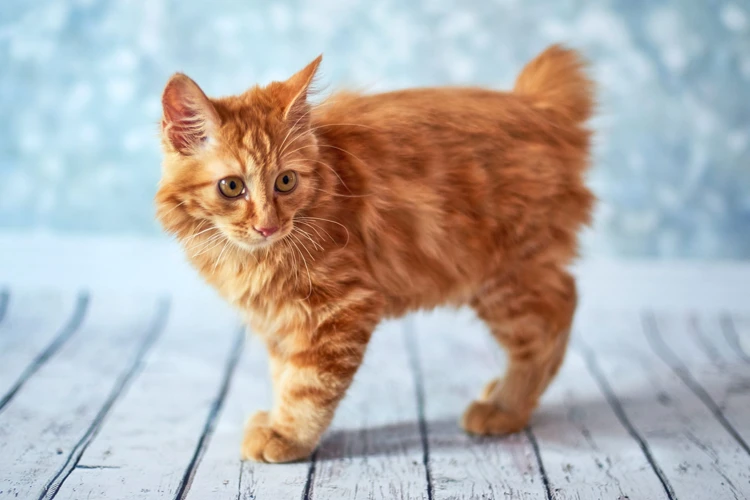
Choosing the right hypoallergenic cat food for your American Bobtail cat can be a daunting task. With so many options available, it can be overwhelming to decide which one is best for your furry friend. However, by considering a few key factors, such as the ingredients list and whether to opt for wet or dry food, you can make an informed decision that will keep your cat healthy and happy. In this section, we’ll outline the steps you can take to choose the best hypoallergenic cat food for your American Bobtail cat.
Check the Ingredients List
When selecting hypoallergenic cat food for your American Bobtail cat, one of the most important steps is to check the ingredients list. The list of ingredients can tell you a lot about the quality of the food and whether it is likely to trigger allergic reactions in your cat. Here are some tips on what to look for when checking the ingredients list:
- Avoid common allergens: One of the key things to look for on the ingredients list is any ingredients that are known to be common allergens for cats. These can include grains like wheat and corn, as well as certain proteins like beef, chicken, and fish. If your cat has a known allergy to certain foods, be sure to avoid those ingredients.
- Look for limited ingredient diets: Many hypoallergenic cat foods are formulated as limited ingredient diets, which means they contain fewer ingredients overall. This can help to reduce the likelihood of allergic reactions. Look for foods that have a short list of ingredients that are easy to recognize and understand.
- Watch out for fillers: Some cat food manufacturers include fillers in their products to make them more cost-effective. These fillers may not be nutritionally beneficial for your cat, and they can also contribute to allergic reactions. Look for foods that have high-quality ingredients and avoid those that contain a lot of fillers.
- Consider novel proteins: One strategy for reducing the likelihood of allergic reactions is to choose cat foods that contain novel proteins. These are proteins that your cat may not have been exposed to before, so they are less likely to cause an allergic response. Examples of novel proteins include venison, rabbit, and duck.
- Read the labels carefully: When checking the ingredients list, make sure you read the labels carefully. The order in which ingredients are listed is important, as the first few ingredients make up the bulk of the food. You should also look for foods that are labeled “complete and balanced” to ensure that your cat is getting all of the nutrients they need.
By taking the time to carefully check the ingredients list, you can choose a hypoallergenic cat food that is nutritious and safe for your American Bobtail cat. Remember to work with your veterinarian to develop a diet plan that meets your cat’s specific needs and preferences.
Consider Wet vs. Dry Cat Food
When choosing hypoallergenic cat food for your American Bobtail cat, it’s important to consider whether to opt for wet or dry food. Each option has its own benefits and drawbacks, so it’s important to choose the one that will work best for your cat’s individual needs.
Wet Cat Food
– One major advantage of wet cat food is that it contains a higher moisture content than dry food. This can be especially beneficial for American Bobtail cats that might not drink enough water on their own.
– Wet food can also be more palatable for cats, as it often has a stronger aroma and taste than dry food.
– However, wet food can be more expensive than dry food, and it needs to be refrigerated once opened. It can also spoil more quickly than dry food, so it’s important to dispose of any uneaten wet food after a meal.
Dry Cat Food
– Dry cat food is more convenient to store and can be left out for longer periods of time without spoiling.
– It is often less expensive than wet food, so it can be a more budget-friendly option for cat owners.
– However, dry food contains less moisture than wet food, which can lead to dehydration and a higher risk of urinary tract problems in some cats.
– Some cats may prefer the texture and taste of wet food over dry food, which can lead to them not eating enough of their meals.
Ultimately, the decision of whether to choose wet or dry cat food for your American Bobtail cat comes down to individual preferences and needs. It’s important to consider factors like your cat’s age, health, and overall dietary needs when making this decision. You may also want to try offering both wet and dry food to see which one your cat prefers.
Choose Grain-Free Cat Food
When choosing a hypoallergenic cat food for your American Bobtail, it is important to look for grain-free options. Many cats are sensitive to grains such as wheat, corn, and soy, which can cause unpleasant symptoms like vomiting and diarrhea. By choosing grain-free cat food, you can help reduce the risk of potential allergens in your cat’s diet.
Here are some grain-free cat food brands to consider:
- Blue Buffalo Basics Limited Ingredient Diet Grain-Free Indoor Dry Cat Food: This cat food features real deboned turkey as the first ingredient and is free from chicken, beef, corn, wheat, and soy.
- Wellness CORE Grain-Free Indoor Formula Dry Cat Food: This high-protein cat food is made with real deboned chicken and turkey, and features a grain-free recipe with no wheat, corn, soy, or artificial colors or flavors.
- Merrick Purrfect Bistro Grain-Free Dry Cat Food: This grain-free cat food is made with deboned chicken, sweet potato, and peas, and is free from artificial preservatives, colors, and flavors.
- Nature’s Variety Instinct Limited Ingredient Diet Grain-Free Recipe with Real Rabbit: This limited-ingredient cat food is made with real rabbit and is free from commonly used meat and poultry ingredients, as well as grains like wheat, corn, and soy.
Keep in mind that while grain-free cat food can be a good choice for many cats, it’s important to ensure that your cat is getting all the necessary nutrients in their diet. Be sure to consult with your veterinarian before making any changes to your cat’s diet.
Avoid Common Allergy Triggers
When preparing to choose the best hypoallergenic cat food for your American Bobtail cat, you should also consider avoiding common allergy triggers in their diet. Such triggers can cause your cat to experience allergic reactions that may require veterinary attention. Here are some common allergy triggers you should consider avoiding when choosing cat food:
- Wheat: Wheat is a common ingredient found in cat food and can trigger an allergic reaction in some cats. Avoid cat food that contains wheat if your cat is allergic to it.
- Corn: Like wheat, corn is commonly found in cat food and is also a common allergen for some cats.
- Artificial additives: Some cats may be allergic to artificial colors, flavors, and preservatives found in cat food. Try to choose cat food that contains natural ingredients and avoid those that contain artificial additives.
- Dairy: Many cats are lactose intolerant and cannot properly digest dairy products, which can lead to an upset stomach and other symptoms.
- Soy: Soy is another common ingredient found in cat food that can cause allergic reactions in some cats. Avoid feeding your cat food that contains soy if they are allergic to it.
- Meat byproducts: Some cats may be allergic to meat byproducts, which are parts of animals that are not considered meat, such as organs and bones. Look for cat food that contains high-quality, whole meat ingredients instead.
By avoiding these common allergy triggers, you can help ensure that your American Bobtail cat’s diet is free from potential allergens and provide them with the best possible nutrition. Remember to also consult with your veterinarian before making any changes to your cat’s diet or feeding routine.
Other Steps to Take for a Happy, Healthy American Bobtail Cat
As a devoted American Bobtail cat owner, it’s not just about finding the right hypoallergenic cat food, it’s also about taking additional steps to ensure your furry friend stays happy and healthy. Read on to discover several ways to provide your American Bobtail with everything they need to live their best life, from regular vet check-ups to mental stimulation and a clean litter box. By implementing these tips, you’ll be well on your way to being the best cat parent possible.
Regular Vet Visits
Taking your American Bobtail cat to the vet for regular check-ups is crucial to maintaining their health and well-being. A veterinarian can catch health problems early on, preventing them from becoming more serious or even life-threatening.
Why are regular vet visits important for American Bobtail cats?
American Bobtail cats are generally healthy but, like all cats, can be prone to health issues such as allergies, dental problems, and obesity. Regular vet visits allow your veterinarian to monitor your cat’s weight, dental health, and overall health. By catching health problems early on, you may be able to avoid costly medical bills down the road.
How often should you take your American Bobtail cat to the vet?
Generally, adult cats should see a veterinarian once a year for a check-up, while senior cats (over 7 years of age) may need to be seen twice a year. Of course, if your cat has a health condition, they may need to see the vet more frequently.
Here is an example of how often to take your cat to the vet:
| Age of Cat | Vet Visit Frequency |
|---|---|
| Under 1 year | Every 4-6 weeks for vaccinations and check-ups |
| 1-7 years | Once a year for check-ups and vaccinations |
| Over 7 years | Twice a year for check-ups and vaccinations |
What should you expect during a vet visit?
During a routine vet visit, your veterinarian will give your cat a physical exam, check their weight, and may recommend blood work or other diagnostic tests. Your cat will also receive any necessary vaccinations.
Your veterinarian may also ask you questions about your cat’s eating habits, litter box use, and behavior. Be sure to voice any concerns you have about your cat’s health or behavior during the visit.
Scheduling regular vet visits for your American Bobtail cat can help keep them healthy and catch any health issues early on. Consult with your veterinarian to find the best schedule for your cat’s needs.
Provide Plenty of Exercise and Mental Stimulation
As an owner of an American Bobtail cat, you want to make sure that your feline friend is not only fed with the right food, but also provided with enough exercise and mental stimulation to keep them happy and healthy. American Bobtail cats are energetic and playful, so providing them with plenty of opportunities to play and explore is essential.
Exercise is necessary for keeping your American Bobtail cat fit and healthy. It’s important to make sure they get plenty of exercise, both indoors and outdoors. You can encourage exercise by providing toys such as string or a feather wand that will help satisfy their natural hunting instincts. You can also try interactive toys like balls, tunnels and scratching posts, which will also allow your cat to stretch its muscles.
Mental stimulation is equally important for your American Bobtail cat. Providing them with puzzles or toys that challenge their problem-solving skills is a great way to keep their minds active. You can try hiding treats in a puzzle box for them to discover or giving them puzzle feeders that require them to work for their food. It’s also a good idea to rotate their toys to keep things fresh and exciting.
One way to provide both exercise and mental stimulation is to create an indoor obstacle course for your American Bobtail cat. Set up obstacles around the house for them to navigate, such as cardboard boxes to jump over, paper bags to climb into, or tunnels to run through. This will not only provide them with exercise, but it will also keep their minds stimulated as they explore new challenges.
Table: Types of Exercise for American Bobtail Cats
| Indoor | Outdoor |
|---|---|
| Toys (String, feather wands, interactive toys) | Leash walks, outdoor playpens, explore nature |
| Obstacle courses | Running outside, tree climbing, chasing bugs |
| Cat trees, scratching posts and towers | Hunting and catching prey |
Providing plenty of exercise and mental stimulation for your American Bobtail cat is essential for their overall health and happiness. Whether it’s with interactive toys, a homemade obstacle course, or regular outdoor adventures, make sure to give your cat enough opportunities to exercise and explore. Remember to always monitor their activity levels and consult with a veterinarian if you have any concerns about your cat’s health.
Clean Water and Food Dishes Frequently
Regularly cleaning your American Bobtail’s water and food dishes is crucial for their health and well-being. Bacteria can easily accumulate and grow on dishes that aren’t cleaned frequently. This can lead to infections or other health problems that could be easily prevented.
Why is it important to clean water and food dishes frequently?
According to veterinarians, pet dishes can house a variety of harmful bacteria such as Salmonella, E. Coli, and Staphylococcus. When your Bobtail eats or drinks from a dirty dish, these harmful bacteria can spread into their digestive system, causing upset stomachs or even more serious infections.
How often should you clean your American Bobtail’s water and food dishes?
Ideally, you should clean your Bobtail’s water and food dishes every day. This will help prevent the buildup of harmful bacteria and keep your cat healthy. You can use hot, soapy water to clean the dishes or run them through the dishwasher on a high-temperature setting.
What are some tips for keeping your American Bobtail’s dishes clean?
Here are some tips to help you keep your Bobtail’s dishes clean and free of harmful bacteria:
| TIP | DESCRIPTION |
|---|---|
| Use separate dishes for food and water | This helps prevent cross-contamination and ensures that your Bobtail’s water remains clean. |
| Wash dishes after every meal | This will prevent bacteria from accumulating and ensure that your Bobtail always has a clean dish to eat or drink from. |
| Use stainless steel or ceramic dishes | These materials are easier to clean and less likely to harbor harmful bacteria than plastic dishes. |
| Replace old dishes | If your Bobtail’s dishes are cracked, chipped, or otherwise damaged, it’s time to replace them. They can harbor bacteria that are difficult to clean and could be harmful to your cat’s health. |
| Don’t forget about the water bowl | The water bowl should be rinsed and refilled every day, even if it looks clean. This will ensure that your Bobtail has access to fresh, clean water at all times. |
By following these simple tips, you can help ensure that your American Bobtail stays healthy and happy.
Keep the Litter Box Clean
It is important to keep the litter box clean to ensure the health and happiness of your American Bobtail cat. A dirty litter box can lead to a variety of issues, including urinary tract infections, behavioral problems, and unpleasant odors in your home. To ensure your cat is using their litter box appropriately, follow these tips:
- Regular cleaning: Scoop out solid waste daily and clean the litter box at least once a week. Replace the litter entirely every two to three weeks.
- Choose the right litter: American Bobtail cats are known for their love of digging and playing in their litter box. Make sure to choose a litter that is suitable for your cat’s preferences and does not produce excess dust, which could trigger allergies.
- Consider litter box placement: Place the litter box in a quiet, low-traffic area of your home that is easily accessible to your cat. Avoid placing it near their food and water bowls, as cats prefer to keep these areas separate.
- Provide multiple litter boxes: If you have more than one American Bobtail cat, make sure to provide multiple litter boxes in different areas of your home. Cats can be territorial and may not want to share a litter box. Providing separate boxes can also reduce odor and make cleaning easier.
By following these tips for keeping the litter box clean, you can help ensure your American Bobtail cat stays healthy and happy in their home.
Conclusion
In conclusion, choosing the right hypoallergenic cat food is crucial for the health and well-being of your American Bobtail cat. Keep in mind the unique needs of this breed and their potential sensitivity to certain allergens.
Remember to carefully read the ingredients list and choose high-quality cat foods that avoid common allergens such as grains and artificial additives. Both wet and dry cat food options can be suitable, depending on your cat’s preference and dietary needs.
Regular visits to the vet can also ensure that any health issues are caught early on, before they become more serious problems. In addition, providing your cat with plenty of exercise and mental stimulation can improve their overall health and happiness.
Keeping their water and food dishes clean and fresh is important for preventing any potential contamination or bacteria. And don’t forget to regularly clean the litter box to maintain a hygienic environment for your furry friend.
By following these steps, you can help ensure that your American Bobtail cat is happy, healthy, and free from any unwanted allergic reactions. Remember to always consult with your veterinarian to discuss any concerns or specific dietary needs.
Frequently Asked Questions
What does hypoallergenic cat food mean?
Hypoallergenic cat food is food that is formulated with limited or specially selected ingredients to reduce the risk of triggering an allergic reaction in cats. These foods are designed to be easy to digest and gentle on a cat’s digestive system.
Is hypoallergenic cat food necessary for all cats?
No, not all cats need hypoallergenic cat food. It is only necessary for cats who have been diagnosed with food allergies or for those who are showing signs of food intolerance. It’s always best to speak with your veterinarian about your cat’s individual needs.
What are the common symptoms of food allergies in cats?
Common symptoms of food allergies in cats include vomiting, diarrhea, itchy skin, and ear infections. In severe cases, cats may even experience respiratory distress or anaphylaxis.
What should I look for in hypoallergenic cat food?
When choosing hypoallergenic cat food, look for limited ingredient diets with novel proteins, such as rabbit, duck, or venison. Avoid common allergens like chicken, beef, and dairy. Additionally, choose foods without artificial preservatives, colors or flavors.
Are all grain-free cat foods hypoallergenic?
No, not all grain-free cat foods are hypoallergenic. While grains are a common allergen for some cats, they are not the only source of allergens. Look for foods with limited ingredients, novel proteins, and avoid common allergens to ensure that the food is hypoallergenic.
Can American Bobtail cats be more prone to food allergies?
As with any breed, American Bobtails can be prone to food allergies. However, there is no evidence to suggest that this breed is more prone to food allergies than any other breed. If your cat is showing symptoms of allergies or intolerance, consult your veterinarian.
Can I mix hypoallergenic food with other types of food?
We do not recommend mixing hypoallergenic food with other types of food, even treats. This can increase the chances of triggering an allergic reaction or digestive upset in sensitive cats.
What are some common allergens in cat food?
Some common allergens in cat food are chicken, beef, dairy, wheat, and soy. Other possible allergens include eggs, fish, and corn. These ingredients are commonly found in many commercial cat foods.
What can I do if my cat is still showing signs of allergies on hypoallergenic food?
If your cat is still showing signs of allergies or intolerance on hypoallergenic food, consult with your veterinarian. Your cat may need further testing or a prescription diet to manage their symptoms.
Can I switch my cat to hypoallergenic food without consulting a veterinarian?
No, it is not recommended to switch your cat to hypoallergenic food without consulting with a veterinarian. Your cat may need testing to determine if they have a food allergy or intolerance, and a veterinarian can provide guidance on selecting the most appropriate hypoallergenic food for your cat’s individual needs.

